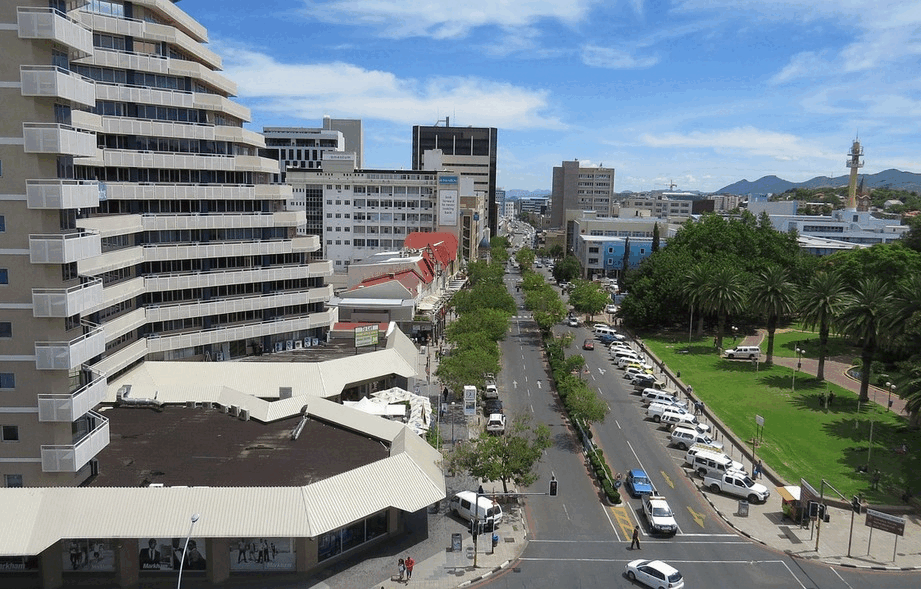A new chapter for the City of Windhoek managing parking meters. Urban areas in Namibia, particularly Windhoek, have been grappling with park...
 |
| A new chapter for the City of Windhoek managing parking meters. |
This new directive aims to address these issues by leveraging the presence and authority of the police force. The Namibian police, with their extensive reach and mandate to enforce law and order, are well-positioned to bring about the necessary discipline and efficiency in managing parking meters.
Contrary to some beliefs, the Municipality does not directly pay KeyPlot Investment. Instead, KeyPlot collects revenue from parking meters and remits a lump sum to the Council.
The state of parking meters in Windhoek has become a hot topic in the National Assembly, with lawmakers voicing concerns about dwindling parking revenues for the state's coffer and outdated infrastructure. The issue was initially brought to light by UDF member of parliament Dudu Murorua, pointing out a serious challenge facing Windhoek city's urban management and infrastructure maintenance.
Murorua pointed out a significant yearly decline in parking revenue, according to the findings of an investigation initiated by the Windhoek Municipal Council in 2021. The investigation revealed that many of the city's parking meters are outdated and have not been properly maintained. This deterioration not only affects revenue generation but also creates inconveniences for motorists and contributes to the broader problem of urban congestion.
In response to these concerns, the Minister of Urban and Rural Development, Erastus Uutoni, clarified the financial arrangements involving the Municipality of Windhoek and KeyPlot Investment, the service provider responsible for parking management. Contrary to some beliefs, the Municipality does not directly pay KeyPlot Investment. Instead, KeyPlot collects revenue from parking meters and remits a lump sum to the Council. This arrangement, while financially sound on paper, highlights the need for better oversight and maintenance of the parking infrastructure.Minister Uutoni also mentioned that trained police officials are managing the parking meters as part of their broader responsibilities. This integration aims to ensure law enforcement presence and authority in parking management, potentially improving compliance and safety. However, the dual role of police officers in both law enforcement and parking management raises questions about their capacity to handle both effectively without compromising either duty.
The debate in the National Assembly also touched on broader infrastructure issues beyond parking meters. PDM member of parliament Mike Venaani highlighted the pervasive problem of potholes on roads in various regions, questioning the maintenance capacity of towns and villages. This concern draws attention to the overall state of urban infrastructure and the allocation of resources for its upkeep.
In response, Minister Uutoni acknowledged the issue and suggested a more strategic allocation of funds from the Road Fund Administration to local authorities. He emphasized the need for new rules to ensure these funds are directed towards critical infrastructure needs, aiming to prevent the misuse of resources that has occurred in the past.
Police management of parking meters
In a progressive move to enhance urban management, the lawmakers proposed that the Namibian Police or City Police should take over the role of ensuring efficient parking measures, the law enforcement agencies need to take the responsibility of managing parking meters in Windhoek and other towns across Namibia. This initiative, while unique, holds the promise of improving the organization, safety, and convenience of urban parking systems, contributing to the overall betterment of urban life.
Police officers have the authority to enforce parking regulations more stringently. This means that violations such as illegal parking, overstaying time limits, and tampering with meters can be more effectively curbed, leading to better compliance and reduced chaos.
The presence of police officers in parking areas can significantly enhance the safety and security of both vehicles and pedestrians. It can deter criminal activities such as theft, vandalism, and harassment, providing a safer environment for all. With the police taking over the management, there can be a more streamlined and systematic approach to maintaining and monitoring parking meters.This includes regular checks, timely repairs, and efficient handling of complaints and issues. Properly managed parking meters can become a significant source of revenue for municipalities. The police can ensure that fees are collected efficiently and transparently, contributing to the city’s finances which can be reinvested in urban development projects. The involvement of the police, a public institution, can increase the trust and cooperation of citizens. People are more likely to adhere to parking rules and regulations when they see a familiar and authoritative presence enforcing them.
The need for change
The discussions in the National Assembly underscore the multifaceted challenges facing Windhoek and other local authorities in Namibia. The Namibian police will need to undergo specific training focused on parking management systems, customer service, and technical aspects of handling parking meters. Moreover, there must be clear communication and coordination with municipal authorities to ensure a seamless transition and operation.
The decision to involve the Namibian police in managing parking meters is a forward-thinking step that aligns with global trends of utilizing law enforcement for urban management roles. If executed effectively, it can serve as a model for other cities facing similar challenges.
As Windhoek and other towns embark on this new chapter, the collective effort of the police, municipal authorities, and citizens will be vital. Together, they can create a more organized, safe, and efficient urban environment that meets the needs of a growing population while setting a benchmark for urban management practices in Namibia and beyond.
In conclusion, the Namibian police taking charge of parking meters represents not just a shift in responsibility but a transformative approach to urban management. With careful planning and cooperation, this initiative has the potential to significantly improve the quality of life in Namibian towns, fostering a more orderly and secure urban landscape for all. Windhoek can pave the way for a more efficient, safe, and modern urban environment that meets the needs of its growing population.






